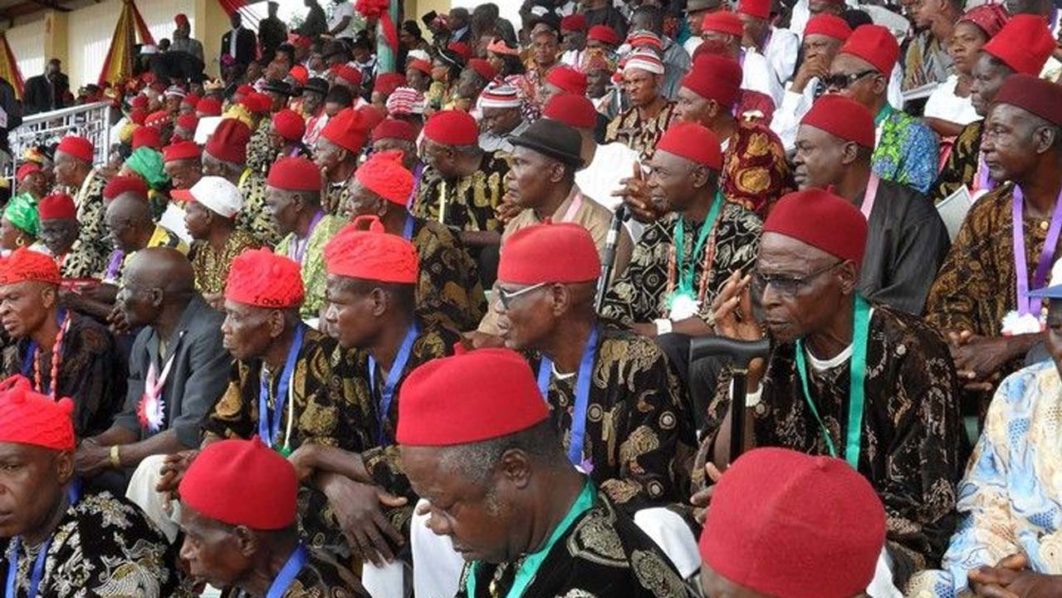
SIR: Ndi Igbo people of SouthEast Nigeria are renowned for their entrepreneurial spirit, industriousness, and cultural emphasis on success. However, in recent decades, a phenomenon of excessive materialism and the ostentatious display of wealth has become prevalent within Igbo communities. This practice, while indicative of economic success, raises profound social, ethical, and cultural concerns, particularly when it manifests as a disregard for traditional values and ethics.
The culture of wealth and material display
In traditional Igbo society, wealth was celebrated as a measure of hard work, industriousness, and contribution to the community. However, wealth was expected to be earned through honest labour, trading, farming, craftsmanship, or other productive endeavours. The community highly valued wealth that served collective interests, such as funding communal projects, supporting extended families, or contributing to cultural activities.
Today, these values are being eroded by the increasing focus on materialism and personal aggrandizement. The ostentatious display of wealth has taken centre stage, with expensive houses, luxurious cars, flamboyant parties, and designer clothing becoming the dominant markers of success. These displays often go beyond the realm of reasonable comfort or prestige to project an image of superiority and exclusivity.
In some cases, such displays serve as a tool for gaining societal validation or asserting dominance over peers. The consequences of this trend are multifaceted and include the fostering of unhealthy competition, envy, and societal divisions.
The flagrant display of wealth by a privileged few is not only callous but also deeply insensitive. Lavish parties, where millions are spent on decorations, food, and entertainment, occur within communities where many cannot afford to eat.
Such extravagance highlights the growing inequality within Igbo society, contributing to feelings of alienation and resentment among those who struggle to make ends meet. Moreover, the callous disregard for the collective well-being reflects a shift away from the communal ethos that once defined Igbo culture.
Adoption of loud names and titles
Another manifestation of this materialistic culture is the adoption of loud and self-aggrandizing names and titles that emphasize wealth. Titles such as “Aku Atata” (Wealth will never finish), and “Eze Ego” (King of Money), “Ana enwe obodoenwe” (Only the strong and the rich can direct the affairs of the town) have become popular, often reflecting the bearer’s affluence rather than their character or contribution to society.
While titles have historically been part of Igbo culture, they were traditionally earned through merit, wisdom, and service to the community. The modern trend of attaching titles to wealth, irrespective of the source, undermines their cultural and moral significance. It sends the message that success is measured solely by financial power, not by integrity, character, or community impact. This shift has contributed to the normalisation of questionable and even illicit paths to wealth acquisition, as long as the end result confers social status and recognition.
The lack of accountability has contributed to a culture where young people aspire to “make it” at all costs, often prioritising quick riches over legitimate and sustainable means of income. This culture erodes the ethical fabric of society, discourages honest labour, and encourages a get-rich-quick mentality that undermines the values of hard work and perseverance.
Disregard for values and ethics
The emphasis on material wealth creates a distorted value system where financial success is seen as the ultimate goal, regardless of the means to achieve it. Ethical boundaries are blurred, and the line between right and wrong becomes increasingly ambiguous. This moral decline not only affects individuals but also undermines the social fabric, breeding mistrust, corruption, and disunity.
Toward a cultural renaissance
Addressing the issues associated with the ostentatious display of wealth and disregard for values requires a collective effort to revive the ethical and cultural foundations of Igbo society. Key steps include: Reinforcing Ethical Standards: Community leaders, elders, and institutions must play a more active role in promoting ethical standards and scrutinising the sources of wealth.
Celebrating individuals who achieve success through honest and legitimate means can serve as a counter-narrative to the current materialistic culture. Promoting education and awareness and reviving traditional institutions can help redefine success beyond material wealth. This approach aligns with traditional Igbo values of communal responsibility and collective progress.
Uche J. Udenka, social and political analyst, can be reached via #AfricaVisionAdvancementTrust.






